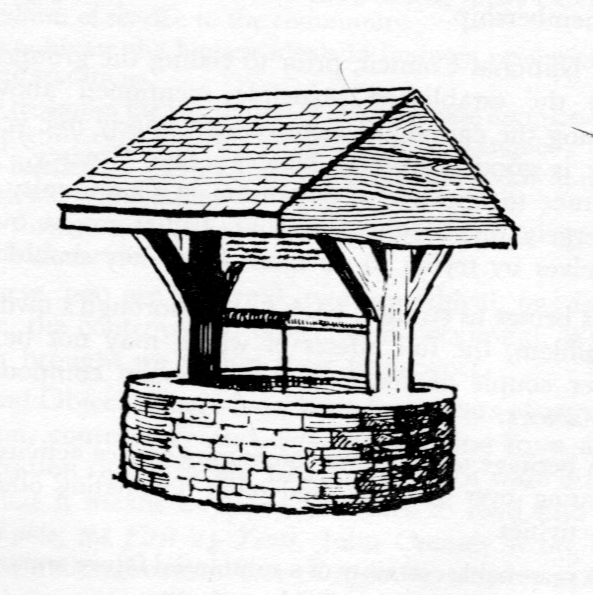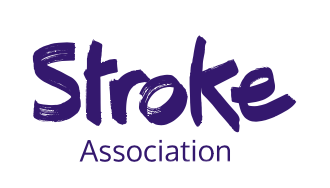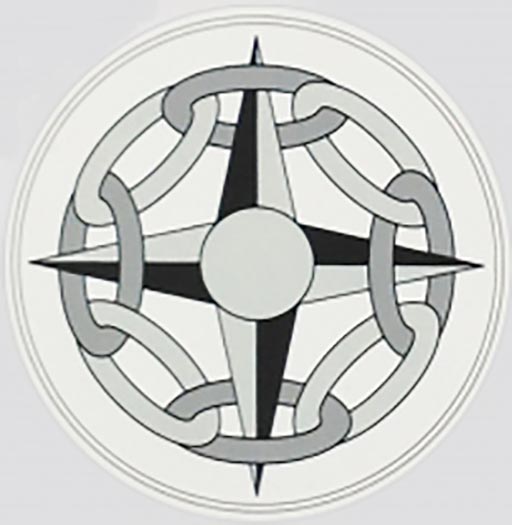What Now?
HERE, AT THIS POINT IN TIME, we reach our deadline. We have followed the fortunes and policies of the Table over the past 34 years. What lies before it can be seen only in part, perhaps darkly, perhaps inaccurately. Whatever else it may be, it will certainly be interesting.
It is interesting for instance, to remember that in 1934 there was some doubt whether Scarborough, with a population of some 40,000, could turn up enough eligible material for a Table to be formed at all. In 1969, when the population of the borough (excluding suburbia) is much the same as it was in 1934, national expansionist thought inclines to the view that such a population should carry two Tables.
It is interesting, too, to reflect that the intake or ‘bulge’ of young post-war members is now at or near the end of its Table life. Already the wind of change is blowing through many Tables, for the views of the younger end do not always coincide with those of their Table seniors. This, in itself, is nothing new. What is new is the certainty of losing an exceptional number of those seniors over an exceptionally short period. With them will go certain ways of thought, and the three words of the R.T. motto will gain a greater domestic significance.
Big Business
What, perhaps, will be most interesting in the Scarborough Table, in the light of the preceding paragraph, is the long-term effect of the tremendous community service active of the past decade. Community service, particularly since the inception of the Wishing Well, has become big business. [72] The domestic problems involved are quite serious, for community service is but one of the foundations on which Round Table is built, not the only foundation nor necessarily the most important foundation. If it is allowed to dominate the fabric, some sort of instability is inevitable.
As has been mentioned earlier in these pages, fellowship is not an end in itself, nor is community service. They are mutually complementary. Should either dominate the other there are dangers. There were dangers twenty years ago, in the five immediate post-war years, when fellowship dominated everything else. Since then the pendulum has swung, with growing momentum, until it has almost reached the opposite end of its swing. Not fully, perhaps, but quite near.
Round Table was never, nor was it ever intended to be, per se, a charitable organisation. It has, however, no set terms of reference, as most charitable organisations have. It has no governing Rule or Object. Its decisions are not wantonly capricious, nevertheless, but they are governed by a curious set of factors – views, energy, ambitions and personality of successive Community Service chairmen, current Table opinion, feasibility of execution, conflicting needs, emotional feelings and Table support. It is not surprising that these can give an overall appearance of capriciousness to otherwise sound decisions.
The Wishing Well may aggravate the problem, for it has achieved what nothing else has achieved, the virtual certainty of substantial continuing annual income. Whether additional annual projects are undertaken or not, the Table has become one of the major charity-distributing organisations in the town. For a club that is not a charitable foundation there is a paradox somewhere.
It has been suggested that there is little true charity in raising money and then looking round for something to spend it on – that, in fact, this negatives the idea of community service. Community service obviously cannot be given until it has been established what service the community needs.
When a need is assessed, as has happened many times in the history of the Table, and a project is undertaken to remedy that need, then true community service is being given. As we have seen, the project may be a money-raising effort or a service-giving effort, or both. In any case, the object of [73] need comes first, and the Table in fellowship works together to fulfil it.
When, however, money-making projects are entered upon for their own sake and the Table has subsequently to look round for ways in which to spend the money, the cart has somehow changed places with the horse. The Table in its objects is neither a Carnegie Trust nor a Gulbenkian Foundation. It is a club in which it has been found over the years that community service is something, like vocational service, that has evolved from the fellowship of a membership that exists not for what it can get out of life but for what it can put into it.
The Objects
Here we may profitably have a look at the Objects of the Movement, the first five having stood from 1927 and one (No. 5) from 1933.
1 To develop the acquaintance of young men through the medium of their professional and business occupations.
2 To emphasise the fact that one’s calling offers an excellent medium of service to the community.
3 To cultivate the highest ideals in business, professional and civic traditions.
4 To recognise the worthiness of all legitimate occupations and to dignify each his own by precept and example.
5 To further the establishment of peace and goodwill in international relationships.
6 To further these objects by meetings, lectures, discussions and other activities.
Of these two are fraternal, two are ethical, one is social and one, the controversial Object 2, is vocational. We have all been brought up within their framework.
Around Object 2 there have been forty years of argument, discussion, controversy and defiance, ranging from a strict interpretation that it means what it says, to a wide interpretation that it means anything you care to read into it. In Round Table, the First 25 Years, John Creasey wrote of the first great national controversy of 1930-35, which was raging during the present editor’s early years in the Table.
The one established principle laid down by the National Organisation was that each Table must decide for itself. [74] Having said that, the leaders leaned towards the negative or vocational side, but almost certainly with their tongues in their cheeks: for everywhere Tables were doing exactly what they thought they should. They were raising money, helping this charity and that, becoming established as valuable and respected organisations within their own communities,
The Future
This typically British compromise was eminently satisfactory. It is perfectly clear today what the founders meant by Object 2, for the concept of service through vocation has made enormous and much publicised strides in the inter evening forty years, at least in some strata of the professional and industrial pyramids, but it was not so clear in the early 30’s. The Stourbridge member who said, ‘This object may be clear to the founder members, but the new recruit always wants to know what it means, and no one can ever tell him,’ was speaking for a large section of the then membership.
The National Council, prior to ceding the ground resulting in the established principle mentioned above, was exercising the caution of a movement barely five years old. ‘There is good reason to believe’, says Creasey, that its reluctance to approve of expansion in Community Service was largely due to the fear that Tables might overreach themselves by trying to do more than they should.’
This brings us straight back to Scarborough’s own domestic problem, the full effects of which may not be felt for another couple of years. It is a problem compounded of three factors:
1 A heritage of enormous community service activity, accelerating over 10 years, and often dominating other Table activities.
2 A reasonable certainty of a substantial future annual income irrespective of further Table projects.
3 A certainty of losing senior members comprising a quarter of the Table’s membership within two years. [75]
It must be emphasised that any views here expressed a those of an onlooker. It is no part of the present writer’s duty to express purely personal views, but he has inevitably had to discuss Table matters with many past and present members, and he has endeavoured to put down something of what is going on in minds other than his own.
It is a profitless exercise to attempt to look into the crystal ball, but it is a highly profitable one to face known facts, to interpret them with the wisdom that Round Table has always, and sometimes astonishingly, commanded; and to go on from there in strength. In other words:

ADOPT ADAPT IMPROVE [76]

